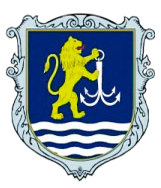ESTABLISHMENT OF RISK-ORIENTED API/PNR PROGRAMME MODEL FOR EFFECTIVE PASSENGER CONTROL ON INTERNATIONAL FLIGHTS
Abstract
Introduction. Continuous growth in the number of passengers on international flights increases customs authorities and other relevant agencies need to be prepared to handle the number of passenger without harming the speed of the passengers flow through the air border checkpoints. Responding to this increase, the use of modern technology and greater domestic and international cooperation can enhance the effectiveness of customs control and assist customs to more efficiently cope in preventing the crossborder movement of terrorists, threats arising out of the terrorist activity, prevent dangers to national security. Incorporating passenger selection/screening criteria based on high-quality risk indicators and advanced passenger information has proven to have a positive effect on enforcement activities. Purpose. The purpose of the research is to develop risk-oriented Advance Passenger Information and Passenger Name Record (API/PNR) programme model for effective passenger control. Results. It was found that successful establishment and utilization of proposed risk-based conceptual model of Advance Passenger Information (API) and/or Passenger Name Record (PNR) in Azerbaijan offer the following benefits for the involved parties: simplification and facilitation of existing procedures; reduction or elimination of unnecessary passenger control measure; access to the risks, fulfil targeted controls and provide pre-clearance of the flights; establishment of a risk-based model for Border Control Management; improvement and determination of the ways to overcome the challenges faced in matters related to identification and risk management systems; increase of awareness of the interested government bodies with the further possibilities more effectively address potential threats targeting national security. Conclusions. Advance Passenger Information and Passenger Name Record data play an important role in identifying the risks because it allows customs authorities to carry out targeted and risk-based control, which helps to detect and prevent a number of serious transnational offenses while maintaining data protection and privacy.
Downloads
References
2. Guidelines on API. URL: http://www.wcoomd.org/~/media/wco/public/global/pdf/topics/facilitation/instruments-and-tools/tools/api-guidelinesand-pnr-doc/apiguidelines_eng.pdf?db=web
3. Passenger Name Record (PNR) Guidelines. URL: https://www.iata.org/iata/passenger-data-toolkit/assets/doc_library/04-pnr/New%20Doc%209944%201st%20Edition%20PNR.pdf.
4. Customs Code of the Republic of Azerbaijan. URL: https://continentonline.com/Document/?doc_id=31145374.
5. Decree Cabinet of Ministers of the Republic of Azerbaijan № 263, 22.07.2014 “On declaration of commodities and transportation means passed through the customs border” – Article 17. URL: http://www.e-qanun.az/framework/28199.
6. The official website of the State Customs Committee of the Republic of Azerbaijan. URL: https://customs.gov.az.
7. Message Implementation Guides on API and PNR. URL: http://www.wcoomd.org/en/topics/facilitation/instrument-and-tools/tools/apipnr.aspx.
8. WCO Recommendation concerning the use of API and PNR. URL: http://www.wcoomd.org/-/media/wco/public/global/pdf/about-us/legal-instruments/recommendations/facilitation/rec_2012_api_pnr_en.pdf?la=en.
9. Revised Kyoto Convention. URL: http://www.wcoomd.org/en/topics/facilitation/instrument-and-tools/conventions/pf_revised_kyoto_conv/kyoto_new/spanj.aspx.
10. Council of the European Union. Common non-paper on the value of PNR for Customs law enforcement and risk management in light of the new PNR Directive. URL: http://www.statewatch.org/news/2017/mar/eu-councildutch-customs-pnr-paper-14785-16-rev3.pdf.





